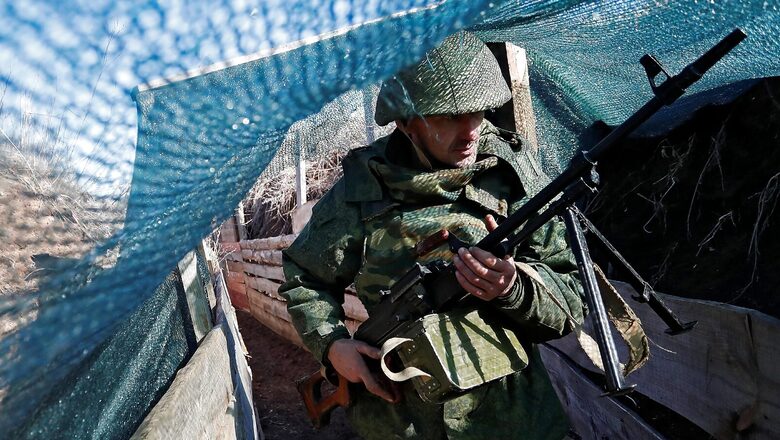
views
The US envoy to the United Nations Linda Thomas-Greenfield accused Russia of tearing the Minsk agreement to shreds at the United Nations Security Council (UNSC) meeting late on Monday. Her reaction came hours after the Russian government recognised the rebel held Luhansk and Donetsk as independent regions. Russian envoy to the UN Vasily Nebenzya told the UNSC that Ukraine is bound by the Minsk agreement deflecting the accusatory questions posed at the Russian delegation.
Ukraine-Russia Crisis: Full Coverage
What are the Minsk agreements that have come up so often during discussions between European leaders and Russia? Let’s take a look:
The Minsk Agreements were two sets of agreements intended to bring about peace by implementing a ceasefire between Russia-backed separatists in Donetsk and Luhansk and the Ukrainian Army. Minsk I was a 12-point ceasefire deal signed in Belarusian capital Minsk between Ukraine and the Russian-backed separatists in 2014.
Ukraine-Russia Crisis: Live Updates
Under Minsk I, both parties agreed to exchange prisoners, withdraw heavy weapons and ensure adequate delivery of humanitarian aid. This broke down after both parties violated the ceasefire and the Ukrainian army suffered heavy losses at the hands of the Russia-backed rebel forces when they wrested the Donetsk International Airport from Ukrainian control that very year.
Following the collapse of Minsk I, another agreement was decided upon February 2015 when Ukraine, Donetsk and Luhansk rebel forces and Russia brokered by France and Germany. The Minsk II agreements proposed 13 steps to end the conflict. Out of these 13 steps, steps like granting greater self-governance in the breakaway regions and more autonomy to Donetsk and Luhansk stand out. It also called for removal of foreign armies and weapons while giving full control of the state border to the government of Ukraine.
Why Did It Not Work?
Kurt Volker, who served as US envoy to Ukraine during the Trump administration, told news agency Foreign Policy that there were several reasons as to why the agreements did not work. He highlighted that the agreements were signed at a time when Ukraine’s army was depleted owing to the severe losses it suffered in the town of Debaltseve and lost the Donetsk International Airport to the rebels. He outlined one crucial point – Russia fails to understand that it is also a party to the Minsk Agreement as it backs the rebels with military and weapons support.
“The No. 1 thing is that Russia refuses to acknowledge that it is a party to the Minsk agreements, and that it has obligations under the Minsk agreements, which it has never fulfilled,” Volker was quoted as saying by foreign policy.
Another challenge that Ukraine faces is internal hostility from its citizens if those agreements are followed. If Ukraine fully implements the measures mentioned in the Minsk agreements it would mean bowing down to Moscow. Allowing elections in Donbass means allowing Russian proxies in the Ukrainian parliament undermining Ukrainian sovereignty.
It also would anger Ukrainian citizens as hundreds if not thousands of Ukrainian servicemen have lost their lives in the crisis, according to Duncan Allan, a fellow at Chatham House. “The key political provisions are incompatible, in my opinion, with Ukraine’s existence as a sovereign country,” Allan told Open Democracy.
Blinken chose to highlight earlier last month that Ukraine did pave the path for implementing some of the measures mentioned in the Minsk agreements, referring to former president Petro Poroshenko steps to allow for decentralization in 2015 but highlighted that Russia did nothing to keep promises. Ukraine would only allow for decentralization and give more powers to the regions if and when foreign troops – Russian forces – withdraw.
However, despite all that, Minsk agreements are what people believe can help restore peace. As Volker pointed out while speaking to Foreign Policy, “Everybody keeps clinging to the Minsk agreements because at least they say, with Russia’s signature attached, that they respect Ukraine’s sovereignty and territorial integrity. So, nobody wants to give that up.”
Read the Latest News and Breaking News here




















Comments
0 comment